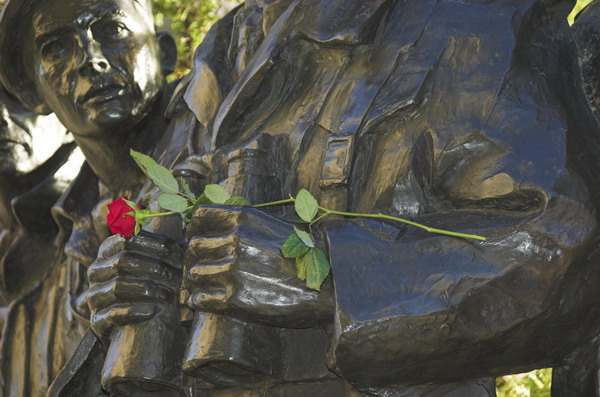
I wonder what my father was thinking a hundred years ago today, somewhere in Northern France as part of the RAF’s ground crew. He’d been conscripted in January 1918, shortly after his 18th birthday (and after having been laid off at a munitions factory) though he could have avoided service on health grounds. The doctor at his medical on his 18th birthday was ready to reject him, as he was stone deaf in one ear, and asked him “Do you want to go in the Army?” and he replied “Yes, I would like to“.
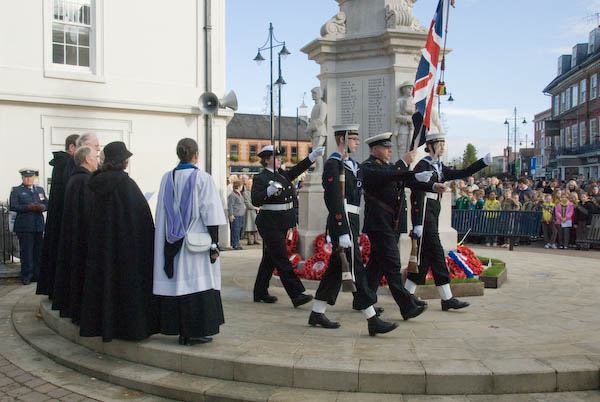
He didn’t talk about the war, but my sister did persuade him to write about his life not long before he died in his eighties. He was assigned to the Royal Flying Corps, possibly because his craft skills were thought to be useful there, but more probably by chance, and after some rather dubious monts of “training” was posted to France in August 1918. At Farnborough he “was given the number 119377 and the rank of 3rd Air Mechanic (called 3rd Ack Emma), and awarded the magnificent wage of one shilling plus one penny a day, seven days a week – the extra penny because I was designated Clerk.”
He writes
“I came into collision with authority very soon. We had a load of petrol in and I was to help unload it. Corporal said “Put it down here”. I pointed out that the pit was on the other side of the lorry, and it was only sensible to put it over there. I was reported and had to go to see the Sergeant -Major. He said that I was on active service and people were often shot at dawn for disobeying orders. I told him I didn’t expect to live very long, and if he liked doing that sort of thing it was OK by me. He told me to clear off and not be so silly. I rather think he had a word with that corporal. I didn’t hear anymore about it.”
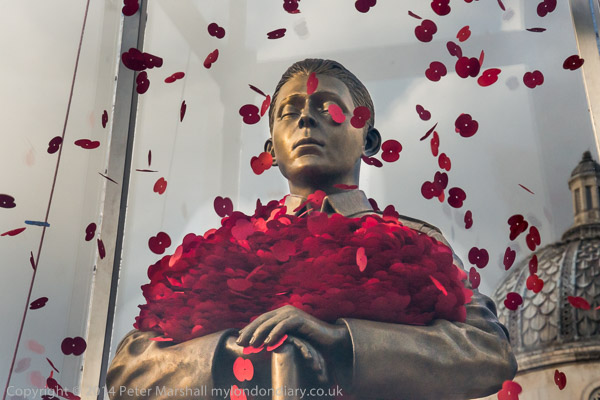
Dad was assigned to HQ Flight and they were stationed somewhere in the St Quentin area, though they had to move very frequently, and he spent much of his time loading and unloading lorries with their stores and equipment.
“Chinese coolies prepared our sites and probably erected buildings; and of course they dug the petrol holes out. There was every nationality represented amongst the troops and auxiliaries. It was amazing how varied an organisation the armies were. There were lots of horses, mules and bullocks pressed in to do the work. Then there were the Tommies and the Frenchies and all the other fighting men, all colours, marching backwards and forwards – Colonials, Indians, Africans; we had an Empire then!”
We were up near Courtrai when the armistice was announced – was it called Bissingham or something like that? … I think we had an inkling that it was coming, and I was crossing over to the flight sheds which were old “Jerry” ones when I met a civilian who shouted “La guerre fini; tres bon, monsieur”; I replied “tres bon, m’sieur”.
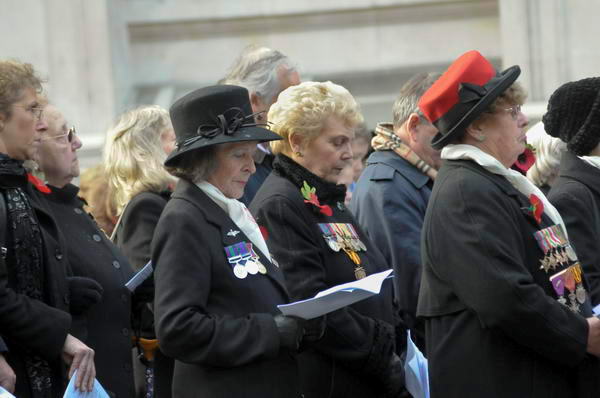
He did come under fire on at least one occasion which he describes, but despite being in the RFC and the RAF I don’t think he ever flew. And while he had a rifle, at least when he was on guard duty, he never used it and said it “just got in the way.” Later Dad went on into Germany after many of those who had served longer were demobbed, ending up in sole charge of the stores he had worked in, only returning to the UK in December 1919 after which he got a month’s leave and £75 in back pay to finish his service, though as he says “of course I was still officially on reserve (perhaps I still am).”
Too old to fight in the Second War, Dad served at home, both as a firewatcher and as a bee-keeper. At the outbreak of the war he was secretary of the Twickenham & Thames Valley Beekeepers Association, who decided to hold a Honey show in “November 1939 to shed a little light on the prevailing gloom.” They called it the ‘Rainbow Show” and it continued annually until the 1945 ‘Victory Show’. Bee-keepers had a vital role in the ‘Dig for Victory’ campaign, with bees both producing honey and fertilising the crops, and though he makes no mention of it in his account I remember him telling me about cycling all around the county as ‘Foul Brood Inspector for Middlesex’, from Staines and Uxbridge to Harrow and beyond, instructing in good practice many of those with no previous experience of keeping bees.
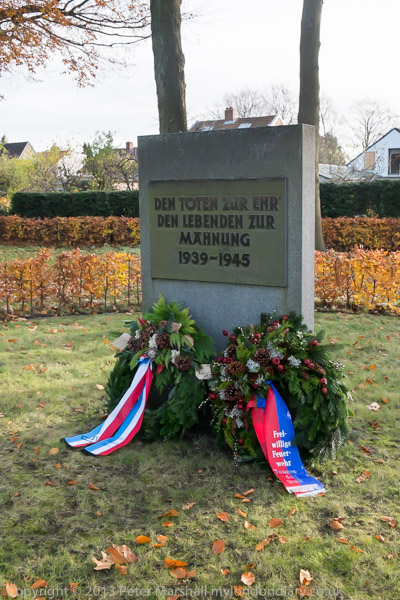
This year I’ve not photographed any of the events to mark 100 years since the end of the “Great War”, the “War to end all Wars” that are taking place today. I’m very much put off by the militaristic nature of so much of the annual celebrations that take part. I was very much more impressed a few years ago when I was in Germany on the 11th of November, when the day seemed to be celebrated not just to remember those who died, but as a festival for peace. It seemed far more respectful of the dead on both sides and what they died for.
______________________________________________________
There are no adverts on this site and it receives no sponsorship, and I like to keep it that way. But it does take a considerable amount of my time and thought, and if you enjoy reading it, a small donation – perhaps the cost of a beer – would be appreciated.
My London Diary : London Photos : Hull : River Lea/Lee Valley : London’s Industrial Heritage
All photographs on this and my other sites, unless otherwise stated, are taken by and copyright of Peter Marshall, and are available for reproduction or can be bought as prints.
To order prints or reproduce images
________________________________________________________